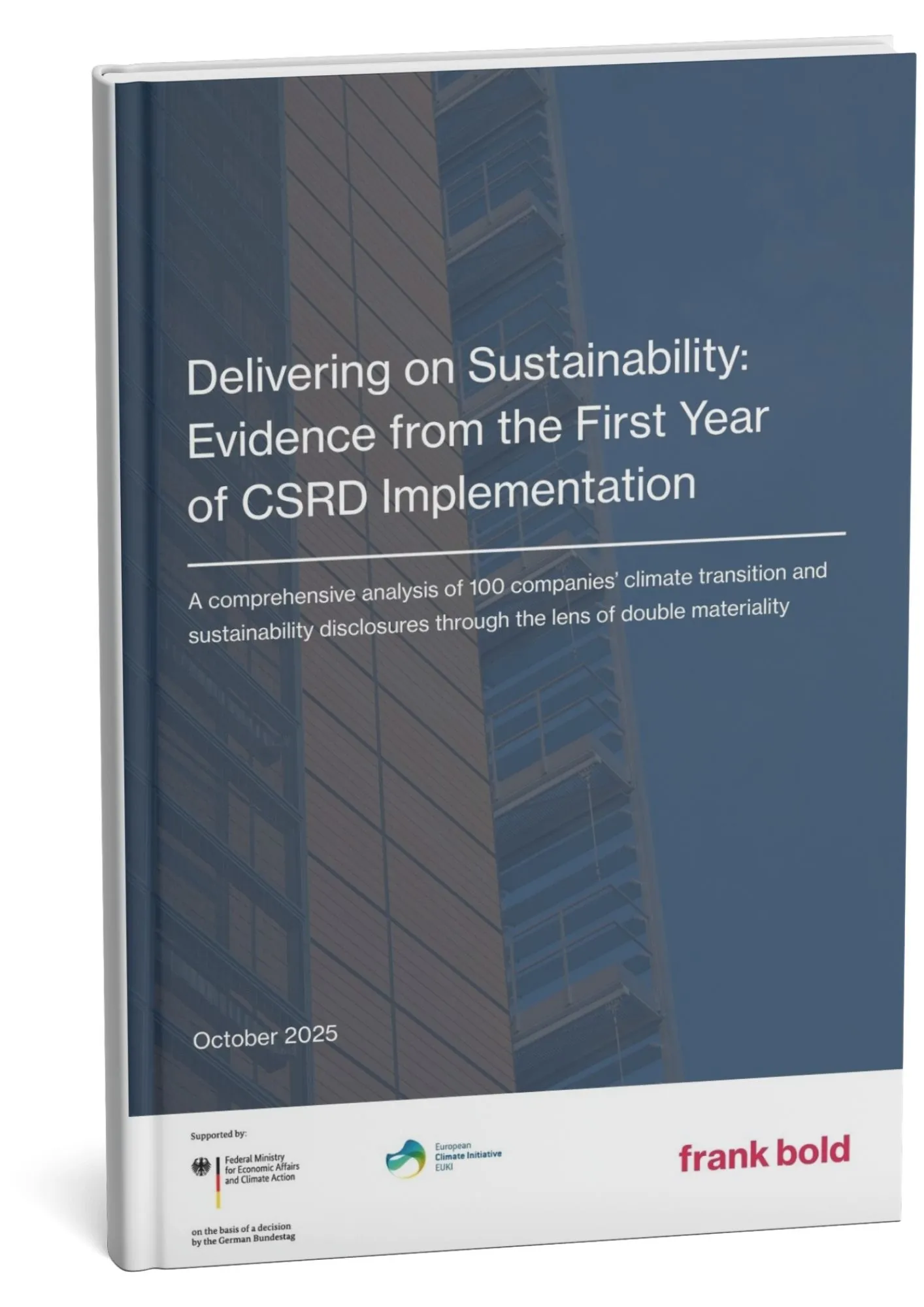The advantage of green bonds and loans is, among other things, their marketing attractiveness. For example, the "green bond" label, combined with the argument that the funds are invested in sustainable projects, allows issuers to offer investors a lower interest rate, as the sustainability of the project guarantees a long-term return on the funds for investors.
"Financial markets are being transformed by the Green Deal for Europe, a roadmap for investment to ensure the sustainability of the EU economy. Demand for green investments is growing enormously, but companies can only get investments based on the data they publish in their non-financial reports," said Pavel Franc, CEO of Frank Bold Advokáti.

Discover how European companies are managing ESG reporting. The new study by Frank Bold’s Responsible Companies team summarizes the first wave of sustainability reports from one hundred major European companies and shows that reporting under the CSRD provides valuable data for decision-making and is becoming an effective tool for risk management. Publication is part of the European Climate Initiative (EUKI) of the German Federal Ministry for Economic Affairs and Climate Action (BMWK).

Comprehensive Sustainability Report aligned with CSRD.
.webp)
A simplified ESG report for your business partners.

Mapped according to GHG Protocol Product Standard.

We are part of the Frank Bold Expert Group
Copyright ©
Aktuální rok script
Frank Bold